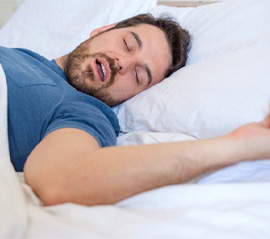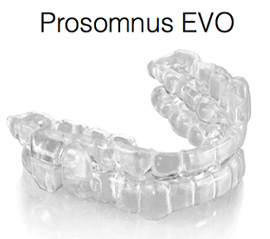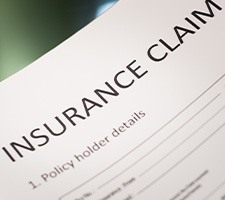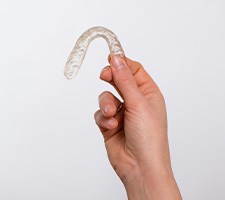


Sleep apnea is far more than simply loud snoring. In fact, it can lead to serious and debilitating conditions later in life when left unmanaged. Considering that one in five adults have at least a mild case of obstructive sleep apnea (the most common form), it’s more important than ever to be mindful of your sleep quality. If you fear you may have sleep apnea, give Cornerstone Dental a call . Our dentists can create a custom-made oral appliance designed to target your symptoms directly, ensuring you can achieve a good night’s sleep again!

Multiple forms of sleep apnea exist, but the most common form by far is obstructive sleep apnea. Also known as OSA, obstructive sleep apnea occurs when the muscles in the throat or back of the mouth begin to relax and collapse. This leads to a blockage inside the airway, which in turn triggers snoring and events known as “apneas.” Apnea refers to a transient cessation of respiration, or a moment where you stop breathing, during sleep. While the body will force you awake to prevent you from suffocating, it makes it impossible to achieve the deep stages of sleep that are so vital to your long-term health.

Many people assume that sleep apnea is not a big deal, but this is because they likely don’t realize the long-term health effects that can develop. On top of depriving your body of the rest it needs daily, sleep apnea negatively impacts focus, memory and reaction time. This can be especially harmful if you drive to work regularly (or for a living) as it puts you at greater risk of traffic collisions. Additionally, sleep apnea can increase your risk for mood-related problems such as depression.
Multiple studies on sleep apnea have shown the condition to increase the risk of systemic diseases. For example, those with sleep apnea are generally at higher risk of developing heart disease or experiencing a cardiovascular event (i.e. heart attacks). Patients with sleep apnea are also about four times more at risk for stroke.

One of the reasons sleep apnea is underdiagnosed is because noticing the symptoms can be quite difficult if you sleep alone. Roughly 80% of sleep apnea cases are untreated. If you notice any of the symptoms below, do not hesitate to contact our office.

While many doctors will recommend continuous positive airway pressure (or CPAP) machines to manage sleep apnea symptoms, this treatment is not for everyone. Those with mild to moderate forms of sleep apnea may want to consider oral appliance devices instead, such as the ProSomnus device. This appliance is customized to fit inside your mouth exactly for the most optimal comfort when sleeping. When worn, it positions your jaw forward in order to keep the airway as open as possible. This dramatically reduces snoring and the number of apneas you experience a night.

The cost of sleep apnea treatment depends on multiple factors. When you visit us for a consultation, our team can provide an estimate and help you understand your payment options. While your custom oral appliance might seem a bit on the pricey side, keep in mind that it can save you money in the long run and support your quality of life. It is an excellent value! Continue reading below to learn more about the financial aspect of this service.

Most dental insurance plans do not cover sleep apnea treatment. That is simply because dental plans are designed to support the wellness of your teeth and gums. Sleep apnea is generally viewed as an overall health issue, rather than an oral health one. Therefore, your medical insurance is more likely to provide coverage.

Two main factors affect the cost of sleep apnea treatment:

Sleep apnea therapy might seem like it is a bit expensive, but it can actually help you save money in the long run!
One way in which it does so is by supporting your health. Poor quality sleep is associated with an increased risk of many conditions, including diabetes, heart attack, high blood pressure, dementia, and more. Treating your sleep apnea may delay or prevent the onset of such issues, which can reduce overall medical costs throughout your lifetime. Keeping yourself healthy and well-rested can also equip you to reach your career goals and avoid expensive accidents while you are driving.

If you do not wish to pay for the entirety of your treatment upfront, ask us about financing options. We accept both Cherry and CareCredit. The application process is easy, and most patients are eligible for an affordable low-interest payment plan.
Would you like to learn more about sleep apnea therapy and its cost? Get in touch with our Fargo, ND, team today. We look forward to speaking with you!
At first, it may seem counterintuitive to visit a dentist for treatment for a sleep disorder. However, the truth is that dentists are intimately familiar with oral anatomy and the upper airway. Plus, they understand the nuances of how to design custom oral appliances that will provide effective treatment.
Of course, not all dentists offer sleep apnea treatment, so it is important that you choose one who has completed the necessary training if you are looking to improve the quality of your sleep.
No. Not everyone who snores has sleep apnea, and not everyone with sleep apnea snores. Although snoring and obstructive sleep apnea (OSA) occur together very often, they are different conditions. Snoring is simply that sound that occurs when air causes the tissues in the throat to vibrate. Pretty much everyone snores on occasion.
In some cases, the tissues that vibrate during snoring actually block the airway, causing apneas (periods of not breathing).
Snoring is typically only a cause for concern if it is both loud and frequent.
Sleep apnea is not self-diagnosable. You should undergo an official sleep test in order to determine if you have this condition.
However, you can do some self-evaluation to figure out if you should request a sleep test from your medical team. If you snore frequently, always seem to be tired, and have other symptoms of a sleep disorder, start keeping track of your sleep in an app or notebook. Your medical team can use your sleep journal to recommend your next steps.
In some cases, OSA occurs because extra fatty tissue is placing pressure on the airway, leading to breathing problems during sleep. If that is true in your cases, your symptoms could be greatly reduced (or perhaps disappear) if you lose weight. Often, even a small amount of weight loss is enough to improve sleep quality.
Of course, it is also worth noting that even very slim individuals can develop OSA. It can have a range of different causes, many of which are not connected to body weight or composition.